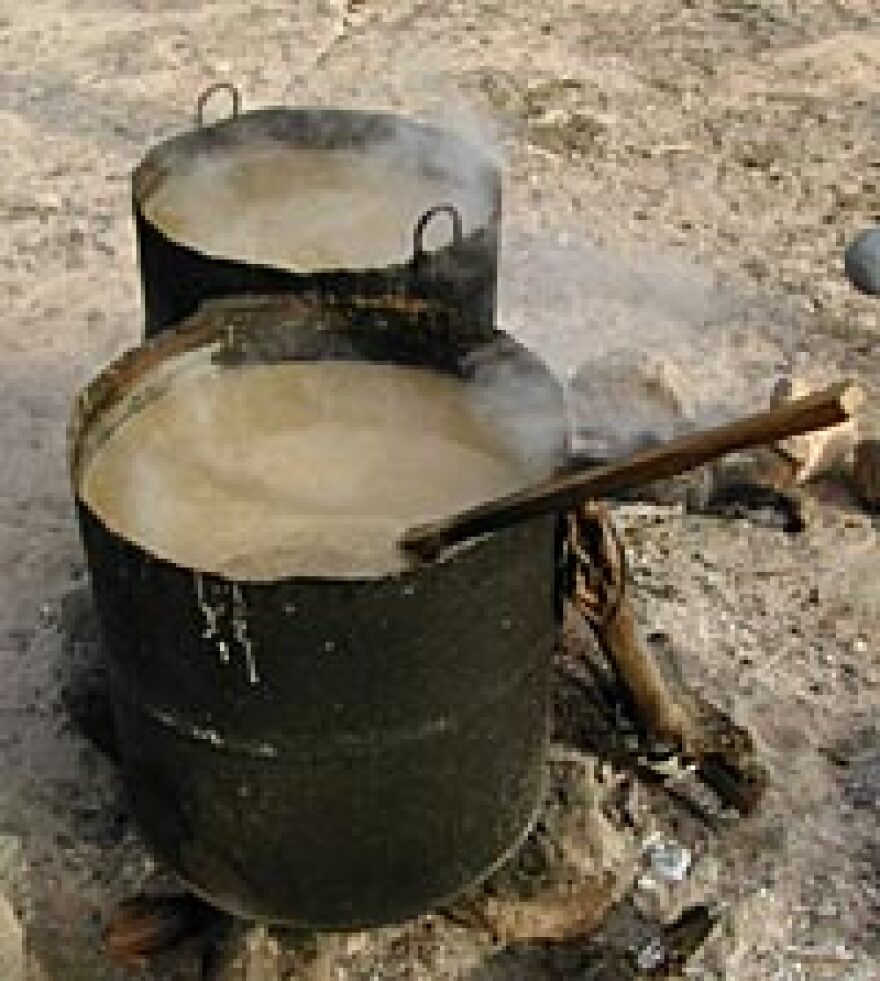

Good Friday is observed with solemnity by Christians around the world as the day Jesus died on the cross. In the rugged valleys of the Sierra Madre in the Mexican state of Chihuahua, the Tarahumara Indians observe Holy Week unlike any other Christians on the globe.
In the latest report for the NPR/National Geographic co-production Radio Expeditions, NPR's John Burnett finds the annual religious drama has been refashioned into an expression of cultural solidarity, replete with barrels of corn beer called tesguino.
For the Tarahumara, the astringent, homemade corn beer is a sacred social lubricant -- and during Easter week, or "semana santa," the entire town of Norogachi turns into a giant brewpub. Corn kernels are soaked, ground up, boiled and spiked with a local grass to help the mixture ferment.
The Tarahumara (who refer to themselves as the Raramuri) are a linguistic group of 120,000 who share a common language and have preserved their culture through isolation and resistance. For them, beer is an elixir for healing, a barter item and a divine beverage.
"God taught the Raramuri how to make corn beer," says Guadalupe Espino Palma, the traditional governor of the Norogachi district. "We make offerings of tesguino to God himself, and He drinks it also. We use tesguino for dancing, and we enjoy drinking it." Even getting drunk is a spiritual act, he explains.
Bill Merrill, a Smithsonian Institution anthropologist who's spent 30 years studying and working with the Tarahumara, says the tesguino chases out the "large souls" within, leaving only the "little souls." "And so when people get drunk that's why they act like children," he says. "Because the souls that are controlling their actions are the little souls, like little children."
The Raramuri also believe they are God's chosen people, and that their mountain home is the center of the world. In their colorful parades and festivals, they freely use Christian iconography to represent the struggle between the Raramuri and the outside world.
Still, the outside world is slowly creeping into traditional life -- looking for work in the cities, modern comforts can be seductive. "It's easier to get drunk on a couple of beers or a bottle of tequila than to make tesguino and share it with everyone," says Carlos Palma Batista, director of the Raramuri Education Initiative, a Ford Foundation project to help preserve native language and knowledge.
The Easter celebrations of the Raramuri are a big draw for tourists. By custom, participants will drink, dance, drum and carouse for as long as the tesguino holds out, whether two days or two weeks. Spring planting will wait.
And during this corn beer communion, in place of "happy Easter," the Raramuri will say to one another "bosasa" -- "fill up, be satisfied, be contented."
Copyright 2022 NPR. To see more, visit https://www.npr.org.



